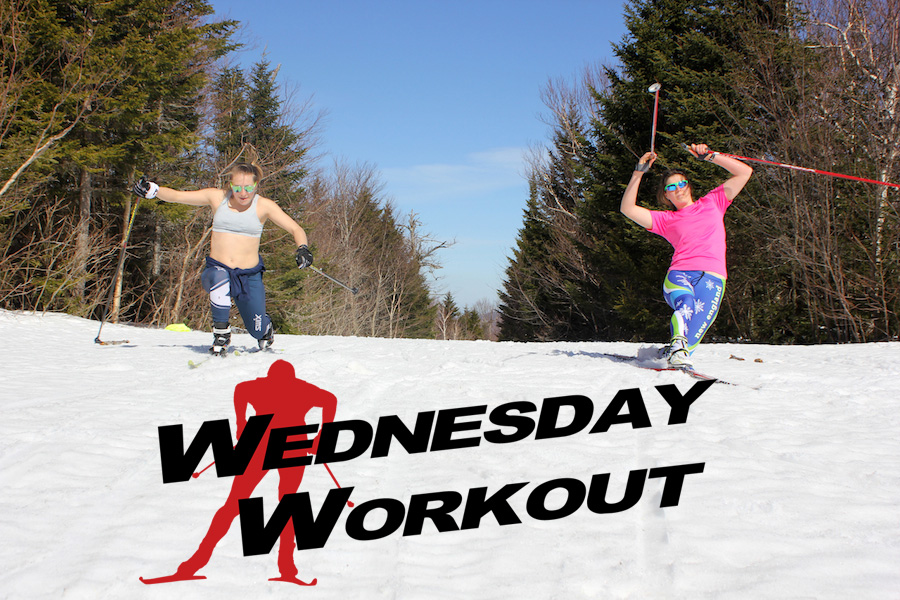
Middlebury, Vt. — Unless you’re the audacious Liz Stephen or Overall World Cup Champion Therese Johaug, you’re probably not a huge fan of hill climbs. However, when the mid-April temps turn our favorite trails into puddles, nordic ski enthusiasts have to get creative to get their on-snow skiing fix before spring training begins.
In Middlebury, skiers at the local college are doing just that by taking advantage of the remaining of snow at the Middlebury College Snowbowl, an college-owned downhill ski area only 20 minutes from campus.
I joined Heather Mooney (Peru, Vt.) and Emily Attwood (Cape Elizabeth, Maine) this past week to take advantage of the long awaited spring weather and to get in a late season ski at the same time. For this retired ski racer, the workout was certainly exhausting but left me full of energy for the rest of the day.
Preparation:
Finding a location for the hill climb and norpine is easy in a place like Middlebury where the alpine ski area is closed and the snow remains in relative abundance. In many western ski areas these circumstances can also be found with the exception of the few mountains that are still open. If this is the case, they most likely won’t allow you to ski, due to the lack of leashes, but it doesn’t hurt to check.
Once the ideal spot is found, there’s not much needed for a spring hill climb and norpine other than a pair of skate rock skis, classic poles (skate poles are too big for the climb as well as the descent), and of course, a sense of adventure. However, there are a few accessories that make this workout even more enjoyable. For example, bring a Jammypack so your favorite jams can aid you in your struggle your up the hill, and provide a sick soundtrack for the cruise down.
In addition, make sure to start your climb in the morning, as warm spring temperatures make the snow pretty soft, wet, and slow later in the day.
The Workout:
Once you’ve adorned your jammypack, jumped on your skis, and hit the snow you have a long trek ahead of you. Most alpine ski areas are fairly steep so be prepared for a haul to the top. At times it can feel like progress in the softening snow is nonexistent, but little by little the hills get conquered.
Once you reach the final ascent of our climb, those who are more ambitious can decide to have a final hill sprint. My two companions decided to have such a race, once again proving that cross county ski racers have some of the most competitive personalities in the sports world.
While you can choose to sit out of the final sprint (as I did), it aids in keeping those post-season legs fit and fresh with a little bit of intensity. It also certainly adds to the sense of accomplishment and exhilaration of climbing to the top of a massive alpine ski area.
Once at the top, the real fun begins. After taking a rest from the 45 minutes of climbing, make your way down the slopes for some awesome twists and turns.
This part of the workout is called norpining. As the name suggests, its a combination of nordic and alpine skiing. While nordic skis don’t have great edges, they certainly make for a fun (and somewhat unstable) 20+ minute cruise to the bottom. It may take a few turns to get used to skinny skis on a steep slope, but by the time you reach the base you’ll be rearing for more.
Lander Karath
Lander Karath is FasterSkier's Associate Editor from Bozeman, Montana and a Bridger Ski Foundation alumnus. Between his studies at Middlebury College in Vermont, he is an outdoor enthusiast and a political junkie.

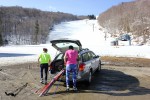
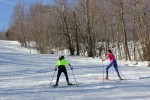
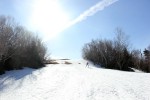
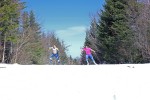
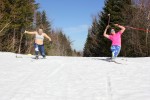
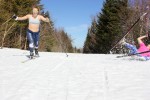
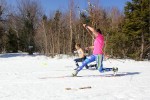
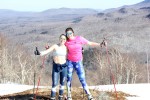
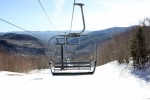
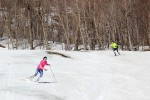

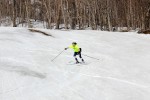
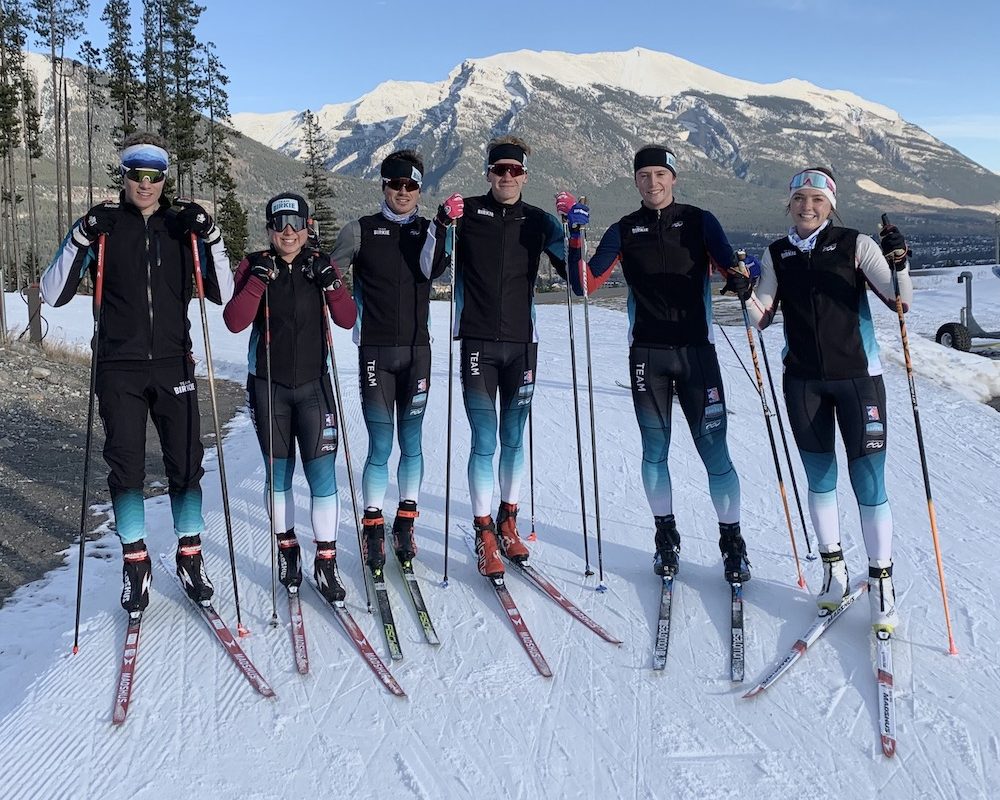
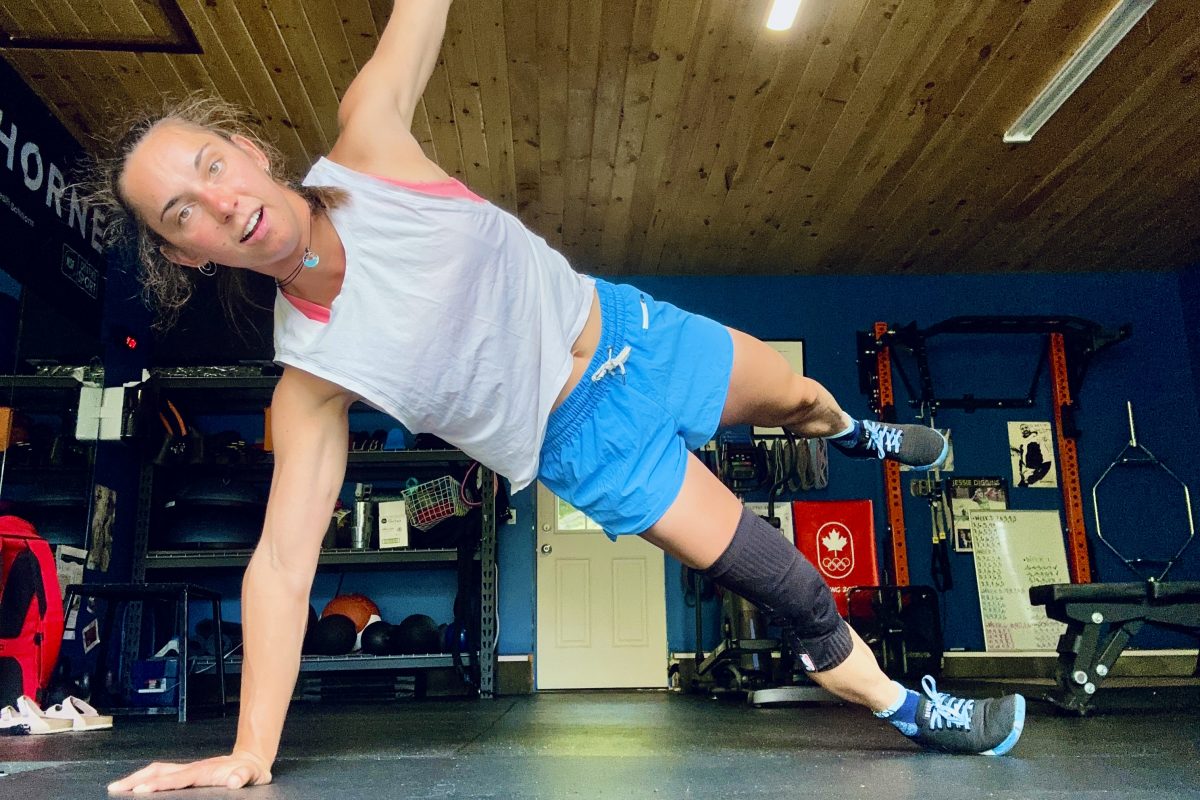
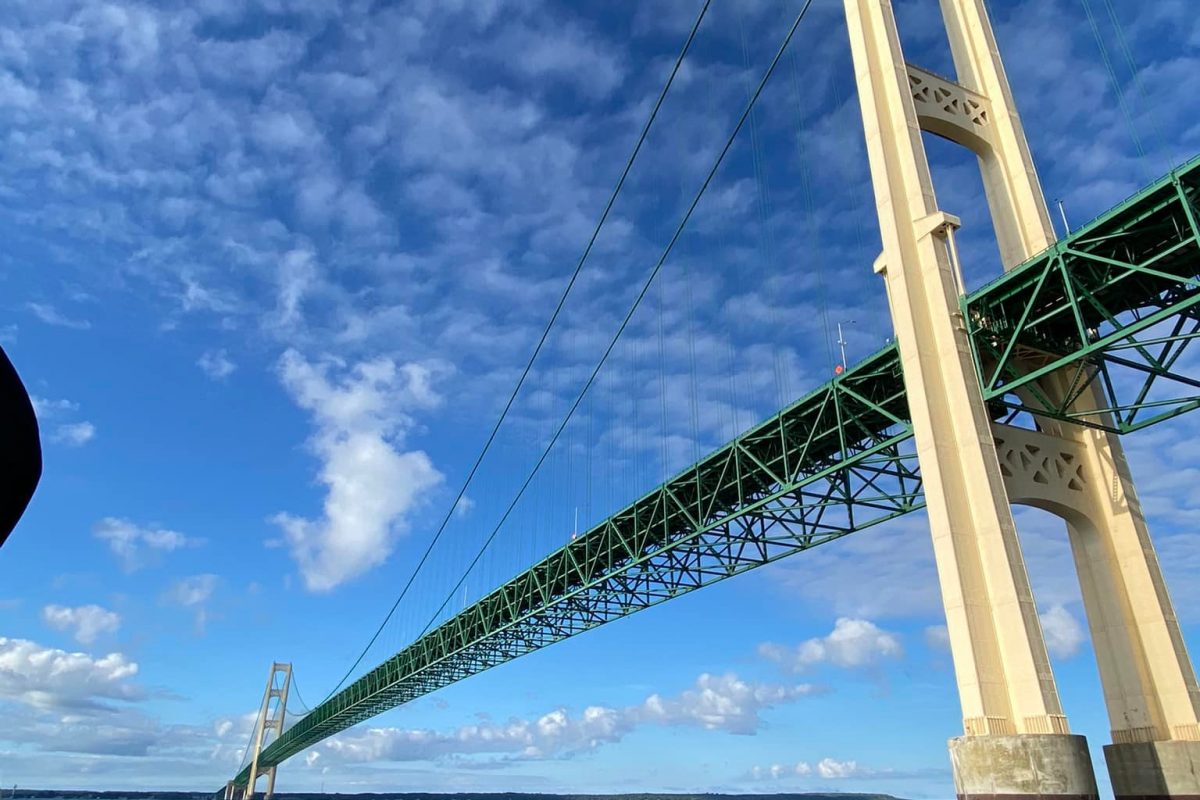
3 comments
jsprizzy
April 16, 2014 at 8:57 pm
Use promo code Teton and you’ll get 20% off you jammypack!
T.Eastman
April 16, 2014 at 11:11 pm
Keep training and you may some day be ready for Whistler or Revelstoke!
davord
April 19, 2014 at 11:03 pm
Nice article Lander! Thanks for sharing.
-Davor